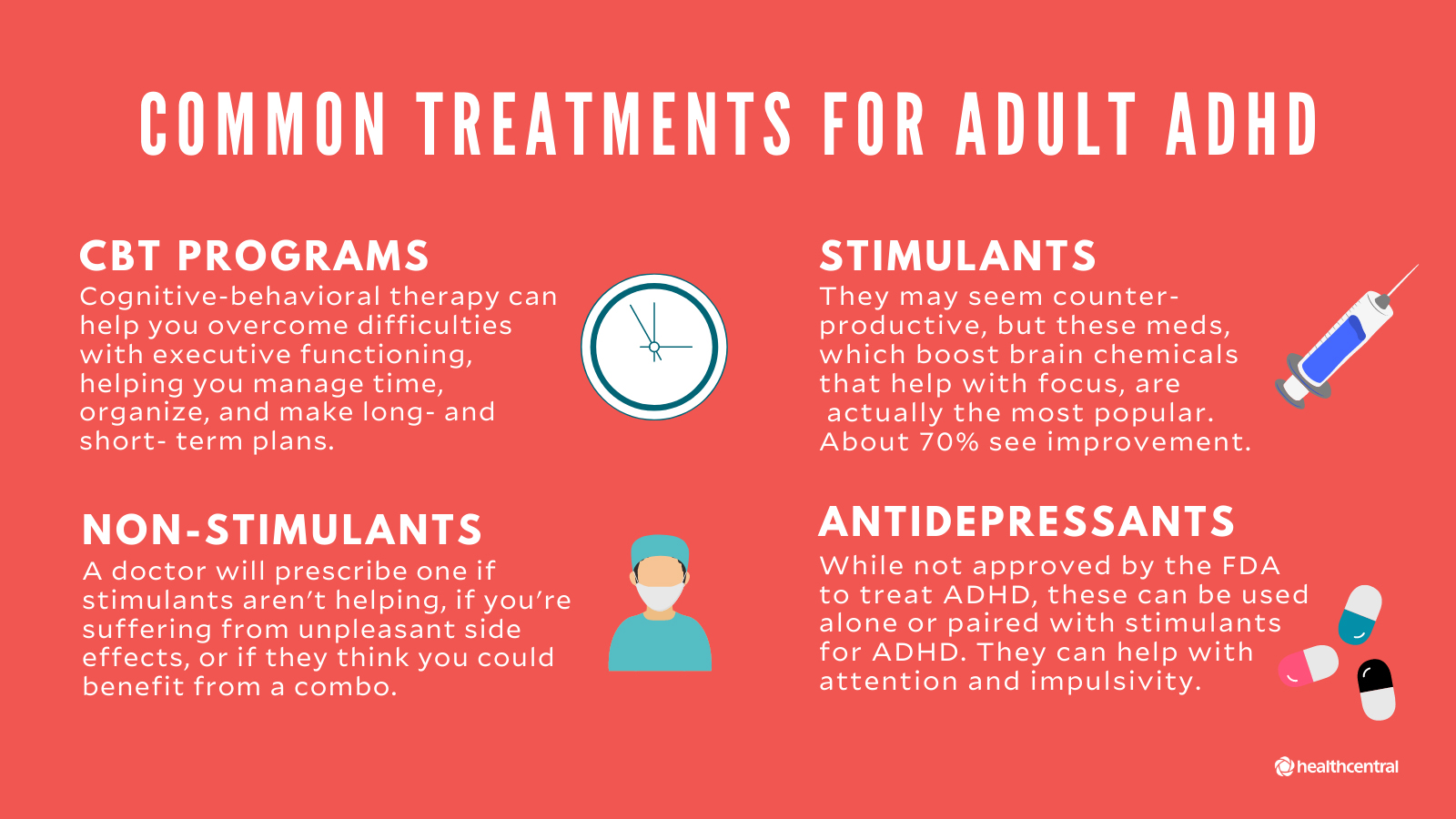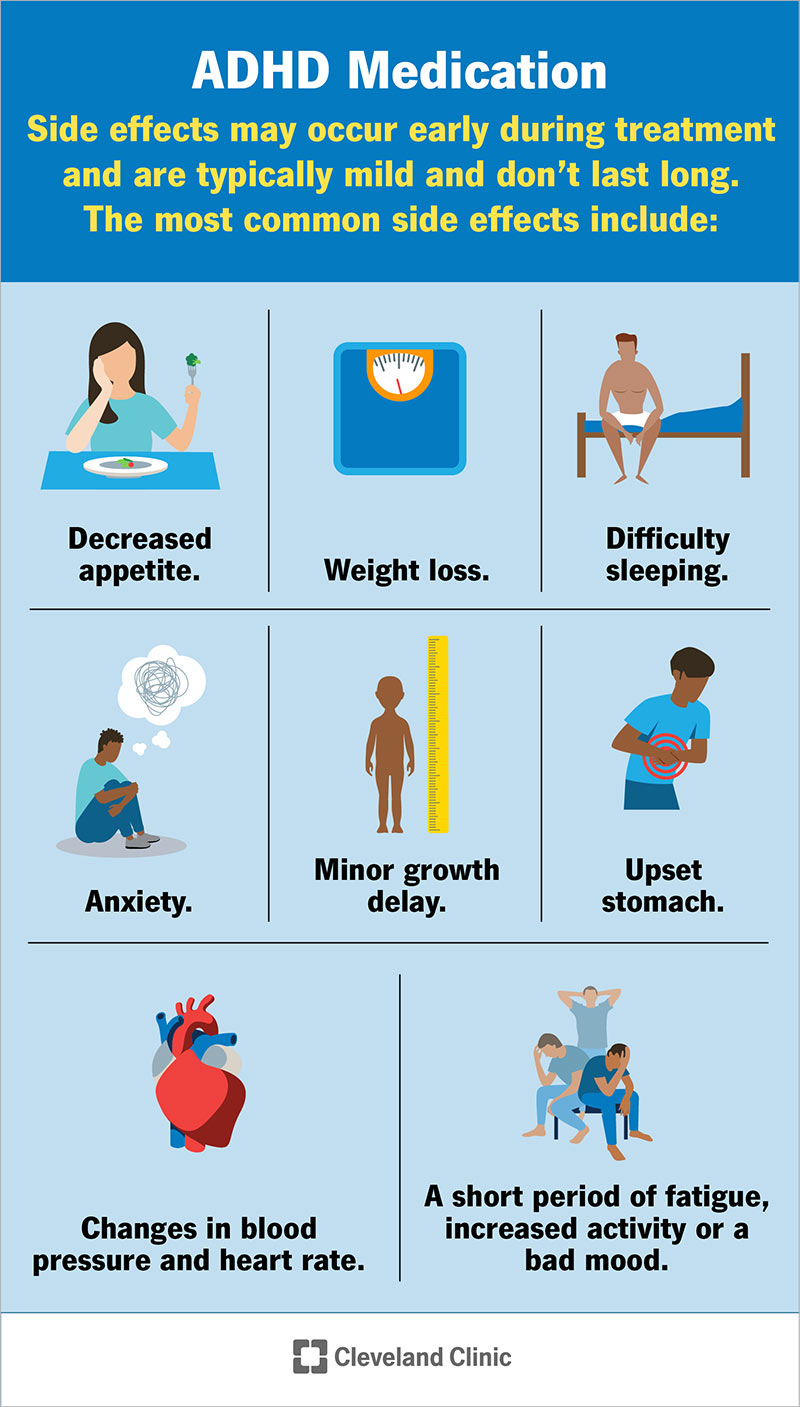Medication Management Solutions for Safe Mental Health Treatments
Medication Management Solutions for Safe Mental Health Treatments
Blog Article
Checking Out Effective ADHD Treatment Options for All Ages
The intricacies of Interest Deficit Attention Deficit Disorder Condition (ADHD) present one-of-a-kind difficulties across various age groups, demanding an extensive exploration of efficient treatment alternatives. A combination of behavior therapies, medicinal interventions, and way of living adjustments has actually shown assurance in attending to the diverse demands of individuals with ADHD. The effectiveness of these techniques can vary dramatically based on personal circumstances, raising crucial concerns about customized strategies. As we take a look at the range of treatment modalities available, it comes to be important to consider not only their instant influences but also their long-lasting effects for people and families.
Comprehending ADHD and Its Effect
Attention-Deficit/Hyperactivity Condition (ADHD) is a neurodevelopmental condition defined by consistent patterns of inattention, hyperactivity, and impulsivity that can considerably affect various aspects of a person's life. It typically manifests in childhood years, although signs and symptoms can linger right into their adult years. The core symptoms of ADHD can disrupt instructional efficiency, impede social interactions, and complicate occupational undertakings.
People with ADHD typically have problem with maintaining concentrate on tasks, organizing tasks, and complying with with on instructions, which can bring about scholastic underachievement (Depression Treatment). In social contexts, impulsivity may cause problems in forming and maintaining connections, as individuals might interrupt conversations or make rash decisions without taking into consideration repercussions
Additionally, ADHD can co-occur with various other mental health and wellness problems, such as stress and anxiety and clinical depression, even more making complex diagnosis and treatment. The irregularity in symptom presentation suggests that ADHD can affect individuals in different ways, necessitating a tailored technique to administration. Recognizing ADHD's diverse impact is essential for establishing reliable techniques that support individuals in browsing daily difficulties and achieving their possibility. Comprehensive understanding of ADHD's nature and implications prepares for checking out appropriate treatment alternatives tailored to each individual's requirements.
Behavioral Therapies for ADHD
Countless behavior treatments have been established to successfully resolve the difficulties related to ADHD, focusing on changing details habits and cultivating crucial abilities. Amongst the most recognized techniques are cognitive-behavioral therapy (CBT), parent training, and social abilities training.
CBT helps individuals identify and alter negative idea patterns and behaviors, promoting an extra favorable expectation and boosted self-regulation. This treatment typically includes useful methods for handling impulsivity and enhancing company. Parent training programs empower caretakers by outfitting them with techniques to reinforce favorable actions and set constant borders, which can be specifically valuable for kids with ADHD.
Social skills training is an additional essential component, training people with ADHD how to interact efficiently with peers - Depression Treatment. This technique often entails role-playing and responses to improve interaction, participation, and conflict resolution abilities
Incorporating these behavioral treatments right into a detailed therapy plan can dramatically boost functioning and top quality of life for people with ADHD. Inevitably, the effectiveness of these therapies depends on customized strategies that consider the unique requirements of everyone, therefore fostering resilience and adaptability in life.
Medicine Options Available
For many people with ADHD, drug can play a substantial function in managing symptoms and improving overall functioning. Both primary groups of medicines suggested for ADHD are energizers and non-stimulants.
Stimulants, such as methylphenidate and amphetamine-based medications, are one of the most typically used treatments. These medications function by enhancing the levels of neurotransmitters, specifically dopamine and norepinephrine, in the brain, which helps enhance focus and reduce impulsivity and hyperactivity. They frequently yield quick results, making them a preferred choice for several clients.

It is essential for doctor to conduct an extensive analysis to determine the most appropriate drug based upon individual needs, medical history, and potential adverse effects. Routine follow-up and surveillance are also essential to guarantee the efficiency of the chosen therapy and to make any necessary changes.
Lifestyle Modifications to Consider
Taking care of ADHD effectively extends beyond medication, as lifestyle modifications can significantly enhance overall wellness and signs and symptom control. Incorporating organized routines is crucial; regular routines aid people with ADHD handle their time properly and lower feelings of overwhelm.
Routine exercise is another essential part. Exercise not just helps to boost concentration however also boosts state of mind and decreases tension degrees. Tasks such as yoga exercise or team sports can be particularly advantageous, advertising both physical fitness and social communication.
Nourishment likewise plays a pivotal function. Depression Treatment. A well balanced diet regimen rich in ADHD Doctor omega-3 fatty acids, entire grains, and lean healthy proteins can add to enhanced focus and cognitive function. Limiting sugar and processed foods is a good idea, as these can exacerbate attention deficit disorder and impulsivity
Rest hygiene is important for taking care of ADHD signs. Developing a normal rest routine and producing a relaxed atmosphere can boost sleep top quality, leading to better attention and psychological policy.
Alternate and All Natural Strategies
Alternative and all natural strategies to ADHD treatment use a diverse series of choices that complement traditional methods. These approaches usually concentrate on way of living modifications, dietary treatments, and therapeutic techniques that intend to boost total well-being while resolving ADHD symptoms.

Mindfulness and behavior modifications are likewise gaining traction as all natural interventions. Practices such as yoga exercise, reflection, and cognitive-behavioral treatment can cultivate self-regulation and boost interest. These techniques sustain psychological resilience, which is specifically beneficial for people with ADHD.
Natural supplements, such as ginkgo biloba and ginseng, are often checked out; however, it is essential to speak with medical care specialists before including these into therapy plans. While alternative and holistic strategies can supply beneficial assistance, they should preferably be used combined with evidence-based treatments to attain optimum results for managing ADHD throughout every ages.
Conclusion
In recap, efficient ADHD therapy requires a thorough approach that includes behavior therapies, medication, way of life modifications, and all natural approaches. Tailored treatments can substantially improve individuals' working and quality of life, while suitable drug ensures optimal symptom management. In addition, adopting structured routines, taking part in normal exercise, and exercising mindfulness can enhance emotional guideline and interest. This multifaceted strategy emphasizes the relevance of customized treatment in resolving the diverse requirements of individuals with ADHD throughout any age teams.
Report this page